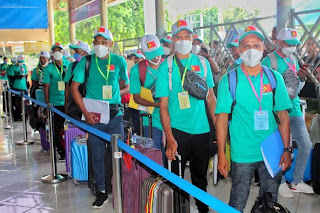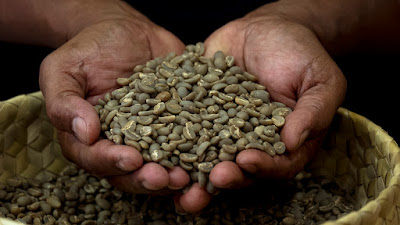Sending Timorese youth overseas: Finding employment or achieving development objectives?
Historically, sending young Timorese overseas is not new for Timor Leste and the Timorese people. Even some of our founding fathers and the current leaders of this nation went overseas for study or for work during Portuguese and Indonesian times, traveling to Portugal, Mozambique, Indonesia, and Australia. This continues even until today.
Since our independence in 2002 many Timorese have travelled overseas, some for studies under development partner and government scholarships, and some for work, posts in embassies and consuls in countries throughout the world. Many thousands have accessed Portuguese passports, to find shelter and employment in the United Kingdom and other European countries. Timorese moving to and working in another country is not a new thing.
Source: Timor News, (6/12/2021)
This short article aims to explore an important question: does Timorese youth going overseas simply achieve a short-term goal of finding, jobs or does it also help Timor Leste to achieve its longer-term development objectives?
The main reason Timorese are going overseas to find jobs or employment is because of a we lack available jobs in Timor Leste. For instance, in 2021 there was only 2275 vacancies created while more than 30,000 youths entering the labour market and only 1,800 could entering the labour force. This shows a severe mismatch of supply and demand in the Timor Leste labour market. A problem that needs a more proactive and integrated solutions among government, civil society, and private sector.
However, there are arguments that these workers contribute greatly to Timor Leste’s national development while working in overseas countries and after they return. Thousands and thousands of youths overseas earn an average monthly salary of between $1200 and $3000 in Korea and Australia, and it is estimated that average savings and remittances of $1300 per month come back to Timor Leste. It is estimated that in 2021 a total of $121million came from the Timorese overseas in Korea, Australia, and the United Kingdom (Matan Ruak, Remarks in April 2022).
Based on a remittance survey (2017) and a reintegration survey (2019), the remittances have had incredibly positive impacts on the lives of workers, their families and the nation. The workers have used these remittances and savings to build/renew houses, access good education and health, and establish small businesses to create jobs for themselves and their friends.
In addition to the benefits from remittances and savings the workers also learned new skills and technologies in overseas countries which they can bring back to Timor Leste to contribute to Timor Leste’s development. For instance, in Australiathey are exposed to large farming industries in fruits and other crops, to agribusiness employment in meat processing, and in hospitality. In Korea and in the United Kingdom, workers gain experience in fisheries, manufacturing, and other industries.
These industries and sectors are all areas where we still need to develop and modernise if Timor Leste is to achieve self-sufficiency, ensure food security, and attract international tourists to produce a diversified economy and quality life for all by 2030.
In addition, these workers also learn marketing skills as they get expose to Australian exports of crops across the world, skills that are much more difficult to access or learn in Timor Leste. Lastly, the workers also learn a new work culture, including organisation and time management skills that make them more productive and effective as workers when they return to Timor Leste. More broadly, modelling this different will help change Timorese work culture and improve understanding that “time is money” and “time is life.”
Source: Tempo Timor, (17/12), Timorese people are working in a field in Werreby, Victoria, Australia
In short, sending Timorese overseas does far more than simply help young people to find employment. It also helps Timor Leste to achieve its development objectives, provided policies and plans are in place to maximise the impacts of their contributions to development.
To conclude, what are the opportunities to increase the long-term development benefits of Timorese youth working overseas?
- Improving preparation of workers before they leave Timor-Leste, to help them begin to think about how they can contribute to Timor-Leste’s development when they return.
- Reducing the costs of transferring savings and remittances.
- A program of reintegration could be introduced, based around helping returning workers to access the skills and finance they need to start or build businesses.
- Countries like Australia and Korea could be encouraged to take more workers, especially in a variety of new fields - for example, aged care, hospitality, building and construction and provide some supports to workers when they return to Timor Leste.
This article is based on opinion and does not represent the organisation or institution the author is affiliated with.
Author: Geraldo Ximenes
About the Author:
Geraldo Ximenes has worked almos 10 years in development programs, including several years working in training and employment creation in Timor-Leste.





Comments
Post a Comment